当日発送について
以下の条件に該当するご注文を当日配送いたします。
・平日(営業日)の12時までにご注文が完了。
・ご注文いただいた商品の在庫がすべてある場合。
・お支払方法がクレジットカード決済か代引きの場合。
※受注状況や確認事項の有無などにより、お時間をいただく場合がございます。
※12時以降のご注文は最短で発送いたします。
定休日のご案内
土日祝日、お盆、年末年始などは出荷業務をお休みいたします。
Now Loading...
以下の条件に該当するご注文を当日配送いたします。
・平日(営業日)の12時までにご注文が完了。
・ご注文いただいた商品の在庫がすべてある場合。
・お支払方法がクレジットカード決済か代引きの場合。
※受注状況や確認事項の有無などにより、お時間をいただく場合がございます。
※12時以降のご注文は最短で発送いたします。
土日祝日、お盆、年末年始などは出荷業務をお休みいたします。
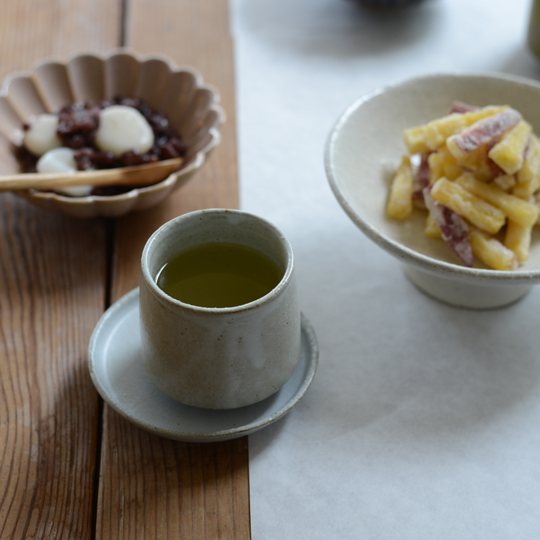
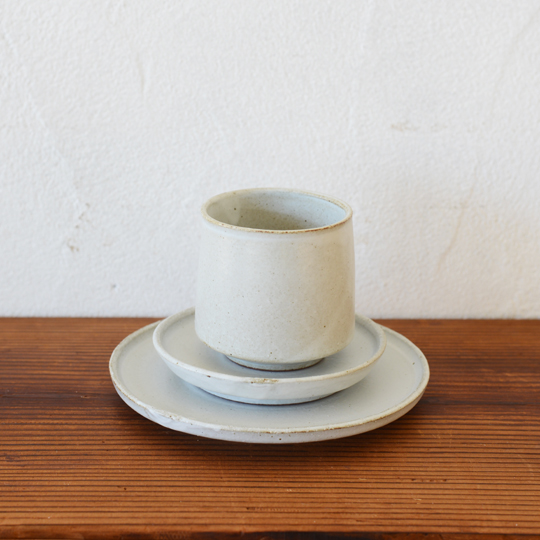
バタバタと過ごしていると、気がつけば一日、一週間あっという間に時間が過ぎていってしまいます。
そんなあわただしい日常からちょっと離れて、お茶を飲んで一息ついてほしい。
フランス語で「休憩する」という意味のルポゼは、そんなお茶の時間に使いたくなる器を考えて生まれました。
ほっと一息つける時間を作り出す、渋くて落ち着きのある大人な雰囲気の湯呑み、茶托と菓子皿のシリーズです。
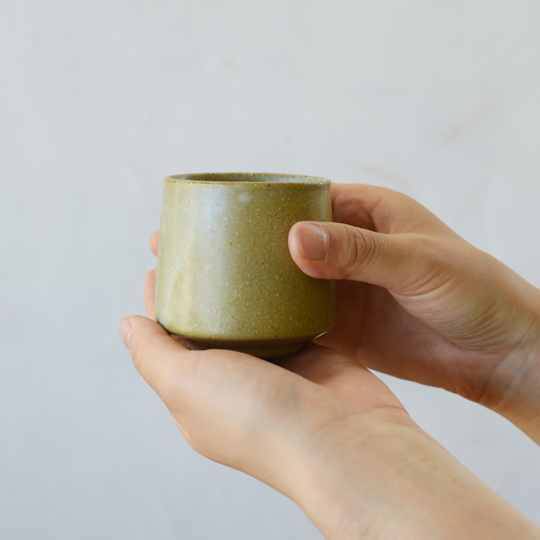
お茶を飲む時、手から伝わる温かさも大切な気がしています。
両手でそっと湯呑みを包みこんでお茶の温かさを感じる。
ルポゼの湯呑みは手にすっと収まる大きさと形にこだわっています。
だんだんとゆるやかに口元に向かってすぼまっていて、
手にコロンとおさまる姿をイメージしてデザインされています。
筒型の湯呑みは口が広がった物よりも冷めにくい形です。
両手を添えて、温度を感じながらお茶を味わってみてください。
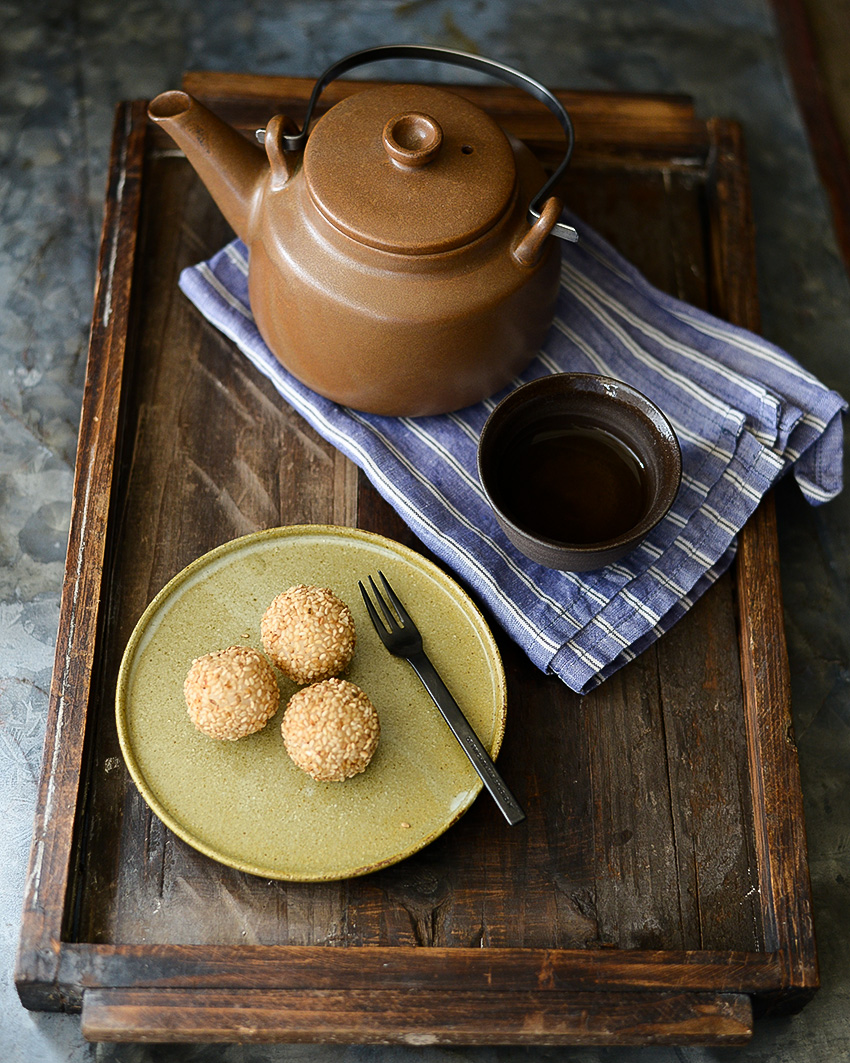
休憩でお茶を飲むとき、ついお茶請けが欲しくなってしまいます。
疲れたときなんかは、特に甘いものをつまみたくなったり…。
ルポゼの菓子皿は、和菓子をひとつ真ん中にのせた姿をイメージされたデザインです。
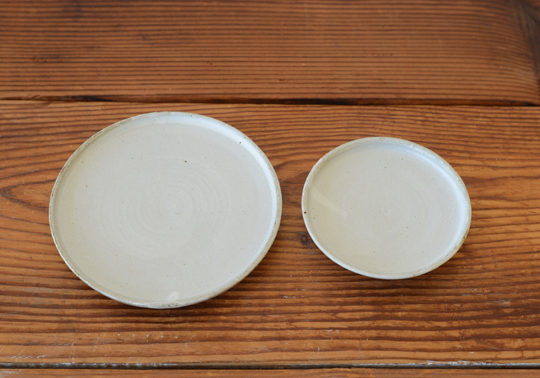
お菓子をちょっと上品に頂きたい時に似合う、凛としたプレートです。
厚いつくりで、縁だけ少し立ち上げました。
生菓子と緑茶。ちょっと洋風にほうじ茶をミルクティーにして、お菓子はバームクーヘン。
いろいろなお茶とお菓子の組み合わせを想像するとわくわくします。
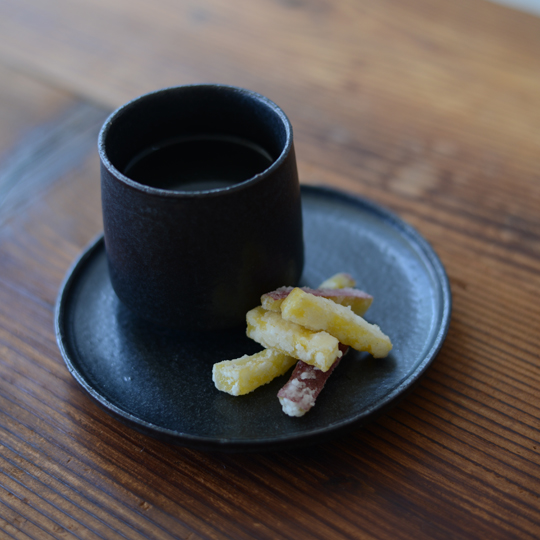
平らな面が広いので、時には湯呑みを直接せて、横にちょっと小菓子を置いても可愛らしい。
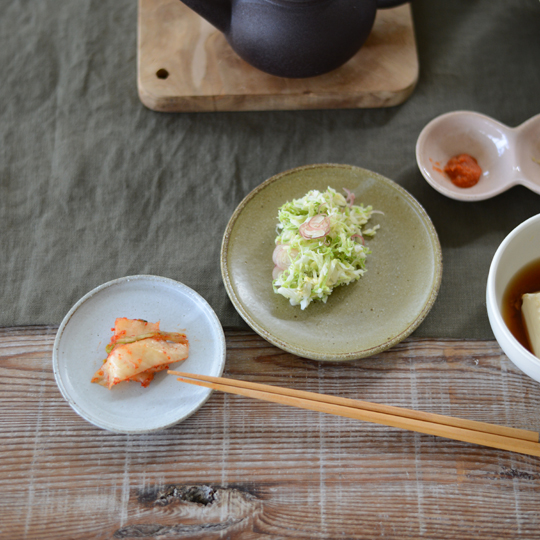
大きさは約14cmと取皿サイズでもあるので、食事時に銘々皿としても使えて活躍の場が広がります。
茶托も、湯呑みの受け皿としての使い方だけでなく、香の物をのせたり、手塩皿としてもちょうど良いサイズです。
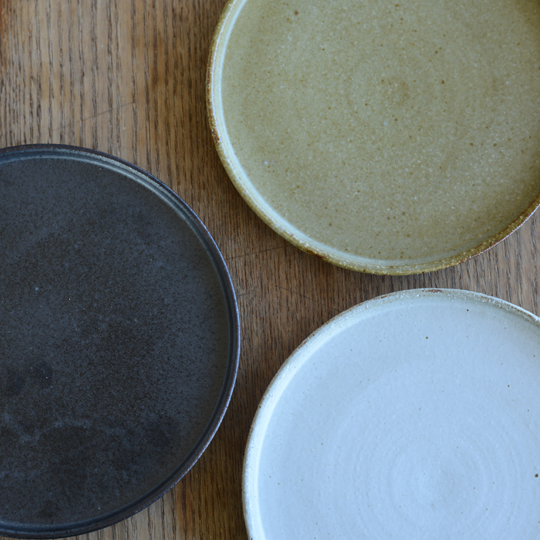
ルポゼは赤い荒土とマットな質感の変化のある釉薬。土と釉薬が高温の窯の中で生み出す、落ち着いた渋い仕上がりです。
お茶を飲んで落ち着いた時に、器の様々な表情をぜひ楽しんで頂きたいなという思いが込められています。
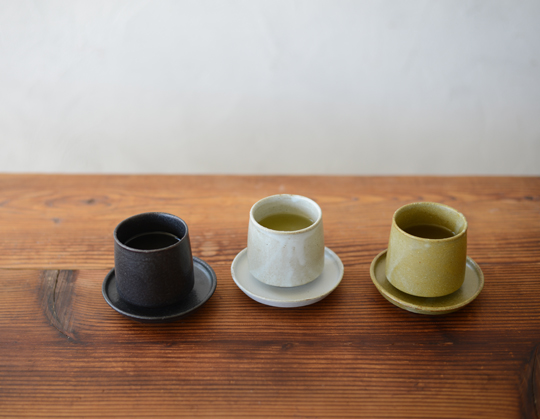
色は3色の展開。
白はマットな白色の濃淡の隙間から薄らと赤土の影響が感じられます。
山吹と黒はツヤとマットの絶妙なバランスにこだわっています。
こちらも生地の赤の影響、そして高温の窯の中で焼かれることで生まれる変化が、
ひとつ器の中で感じ取れます。
ほっと一息つくお茶の時間に、ぜひルポゼを登場させてみてください。